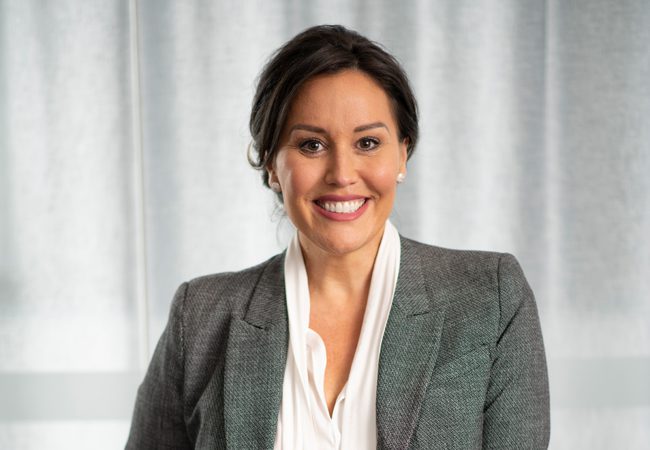Difficulties often arise in cases where a person with children from a first relationship subsequently enters into a new relationship or re-marries. Competing arguments will often emerge as to the testamentary entitlements of the person’s children from the first relationship on the one hand, and the new spouse on the other hand, when the person passes away.
While each case will turn on its own facts, and much depends upon the specific relationships in issue, the issues that tend to arise were well illustrated in Clark v Ro [2016] NSWSC 1877 (21 December 2016), a recent decision of the Supreme Court of New South Wales.
Factual Background
The Deceased was married to his first wife in 1975, and they had a child (the Plaintiff in the proceedings) in 1977. The Deceased and his first wife separated in 2000, and they were divorced in 2001.
The Deceased met his second wife (“Anna“) in 1999. They commenced a relationship in about 2000, and began to live together in about 2001. They were married in 2008, and remained married at the date of the deceased’s death in 2015. The relationship between the Deceased and Anna therefore spanned about 15 years.
There were no children of their marriage, although Anna had a disabled child of an earlier relationship (“Kylie“).
The Deceased’s Will left his entire Estate to Anna, and made no provision for the Plaintiff.
The total value of the Estate was approximately $1.2 million.
The Child
The Plaintiff lived in rental accommodation, had debts of about $103,000.00, and was unemployed because he suffered from an anxiety condition and, in any event, wished to enrol in a university course so that he could change careers.
The Plaintiff’s wife earned about $54,000.00 per year from a part-time teaching position, and he and his wife were both members of a Self-Managed Superannuation Fund that owned a parcel of real property that had been purchased for $340,000.00.
He sought provision from the Estate of $555,000.00 so he could pay off his existing debts, cover the cost of the proposed university course, pay family expenses for four (4) years while he completed the course, pay a deposit on a family home and have an amount for unexpected contingencies.
The Second Wife
Anna’s evidence was that the house in which she had lived with the Deceased had become dilapidated over time, and that she had a continuing responsibility to care for her disabled son. It was accepted that she had made a significant contribution, both in a financial sense and to the welfare of the Deceased, during his lifetime. She owned an investment property worth $1.35 million (subject to a Mortgage of about $316,000.00) from which she received rent, but no other assets of great significance.
General Principles Adult Children
The Judgment sets out a number of general principles concerning Family Provision Claims made by adult children. In summary form, they are as follows:
- Generally speaking, a parent will not be expected to look after his or her child for the rest of the child’s life and into retirement.
- However, if an adult child remains a dependent of a parent there may be an expectation that the parent will make provision consistently with that ongoing dependency.
- Similarly, where a child (even an adult child) falls on hard times, and where there are assets available, there may be an expectation that a parent will provide a buffer against contingencies.
- An adult child’s lack of reserves to meet demands, particularly of ill health, which become more likely with advancing years, is a relevant consideration, as is the need for reasonable financial security and a fund to protect against the ordinary vicissitudes of life.
- If the child is unable to earn, or has a limited means of earning, an income, this could give rise to an increased call on the Estate of the deceased.
- There is no need for an applicant adult child to show a special need but, as the applicant, he or she has the onus of satisfying the Court, on the balance of probabilities, of the justification for the claim.
General Principles Spouses
The Judgment also set out some general principles concerning Family Provision Claims made by the spouse of a deceased person. In summary form, they include the following:
- Generally speaking, and without suggesting that there is an obligation to replicate the way of life that the deceased and his or her spouse planned to have had he or she survived, the general duty of the deceased to his or her spouse, to the extent to which his or her assets permit him to do so, is to:
- ensure that he or she is secure in the matrimonial home,
- ensure that he or she has an income sufficient to permit him or her to live in the style to which he or she is accustomed, and
- provide him or her with a fund to enable him or her to meet any unforeseen contingencies and free his or her mind from any reasonable fear of any insufficiency in older age.
- The position of surviving spouse does not automatically or necessarily attract paramountcy in the face of other competing claims.
- Where competing factors are more or less equal, the fact that one party is the elderly widow of the testator, is permanently unable to increase his or her income, and is never likely to be better off financially, while the other parties are materially younger and have the capacity to earn more or otherwise improve their financial position in the future, will ordinarily result in the needs of the widow being given primacy because the need of the widow would be greater than that of the others.
- Where it is possible to do so after competing factors have been taken into account, a spouse ought to be put in a position where he or she is in control of her own life and not beholden to beneficiaries.
Findings of the Court
In applying those general principles to the facts of the case, the Court noted that the key question was whether an order for provision should be made in favour of the Plaintiff in all of the circumstances.
It was accepted that Anna had a competing claim founded upon both a competing financial need and on her significant contributions to the deceased (both financial and non-financial) over a long relationship and during what turned out to be his declining years.
Indeed, in light of Anna’s circumstances, and taking into account the size of the Estate, the Court did not accept that the Plaintiff should receive provision in the sum of $555,000.00. That was particularly so when a lump sum legacy of that amount would inevitably cause Anna to have to sell her home.
Instead, the Court awarded the Plaintiff a lump sum of $130,000.00 in recognition of the fact that the Deceased had an obligation to the Plaintiff to make provision of a capital sum for exigencies of life and that it could be used to pay off his debts or otherwise.
Conclusion
While the balancing act between the competing claims of a child and a second spouse is invariably heavily dependent upon the facts of each case, the case highlights the considerations that the Court will take into account and the way in which such claims will be evaluated and dealt with.




















